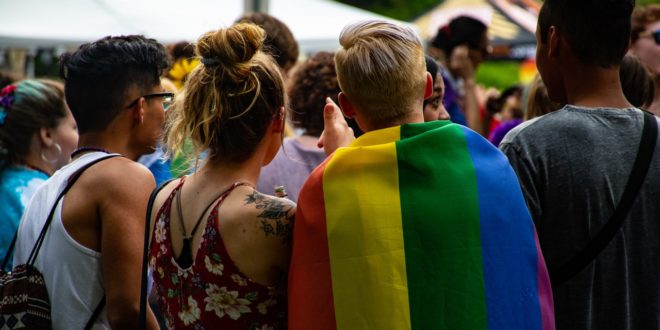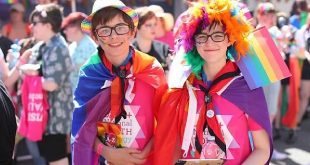Members of the LGBT community typically report a higher level of psychological discomfort and complications in their lives. America may be accepting of sexual minorities in some areas, but not completely across the board. Many, including heterosexuals, turn to drugs to cope with the difficult situations they are presented. Two studies (Substance use of lesbian, gay, bisexual and heterosexual college students and Neighborhood-level LGBT hate crimes and current illicit drug use among sexual minority youth) have recently been published, confirming that LGBT college and high school students typically report higher levels of drug use.
Substance use of lesbian, gay, bisexual and heterosexual college students compared how self-identifying lesbian, gay, and bisexual (LGB) college students and heterosexual use alcohol, tobacco and other drug and alcohol. What they found was that LGB students were more likely to drink in excess. Bisexual college students on the other hand had greater odds of using other illicit substances, with bisexual women reporting the highest.
Drinking and tobacco use already run rampant in Universities. College is an exciting time with new opportunities for socialization and people want to be part of the fun. However, the pressures of campus life and school work combined with the anxieties of leaving home can be depressing for many; especially LGBT communities who report higher levels of discrimination. In Neighborhood-level LGBT hate crimes and current illicit drug use among sexual minority youth, they found cities with high reports of hate crimes towards sexual minority youth also have higher rates of consumption of illicit substances. This proven connection between physical and substance abuse should be raising alarms.
That is not the only contributing factor. Members of sexual minorities also report feeling a greater sense of loneliness and disconnection than their straight counterparts. It’s one thing to feel discomfort moving away from home, but to have nobody to turn to can magnify these emotions. Being lonely is depressing and people that are depressed are more likely to drink. These issues aren’t limited to college life either. LGBT youths in high school, while not as great, report similarly regarding substance abuse.
The problem, as studies seem to show, look more like a social issue than biological. Sexual preference is not something people can be told to make, so adjustments really need to be made towards the treatment of gay communities if these numbers are to be lowered. LGBT groups in colleges are definitely a beneficiary to their members, providing people to confide in for their members but is that really enough? The ideology that we should be treated differently because we have different preferences in the bedroom needs to be erased from society. Nobody should worry about being physically abused just as nobody should need to feel alone.
Dr. M. Mirza, LGBT Health Wellness – 2014
 Lesbian, Gay, Bisexual, Transgender & Intersex News Lesbian News, Gay News, Bisexual News, Transgender News, Intersex News, LGBTI News
Lesbian, Gay, Bisexual, Transgender & Intersex News Lesbian News, Gay News, Bisexual News, Transgender News, Intersex News, LGBTI News




